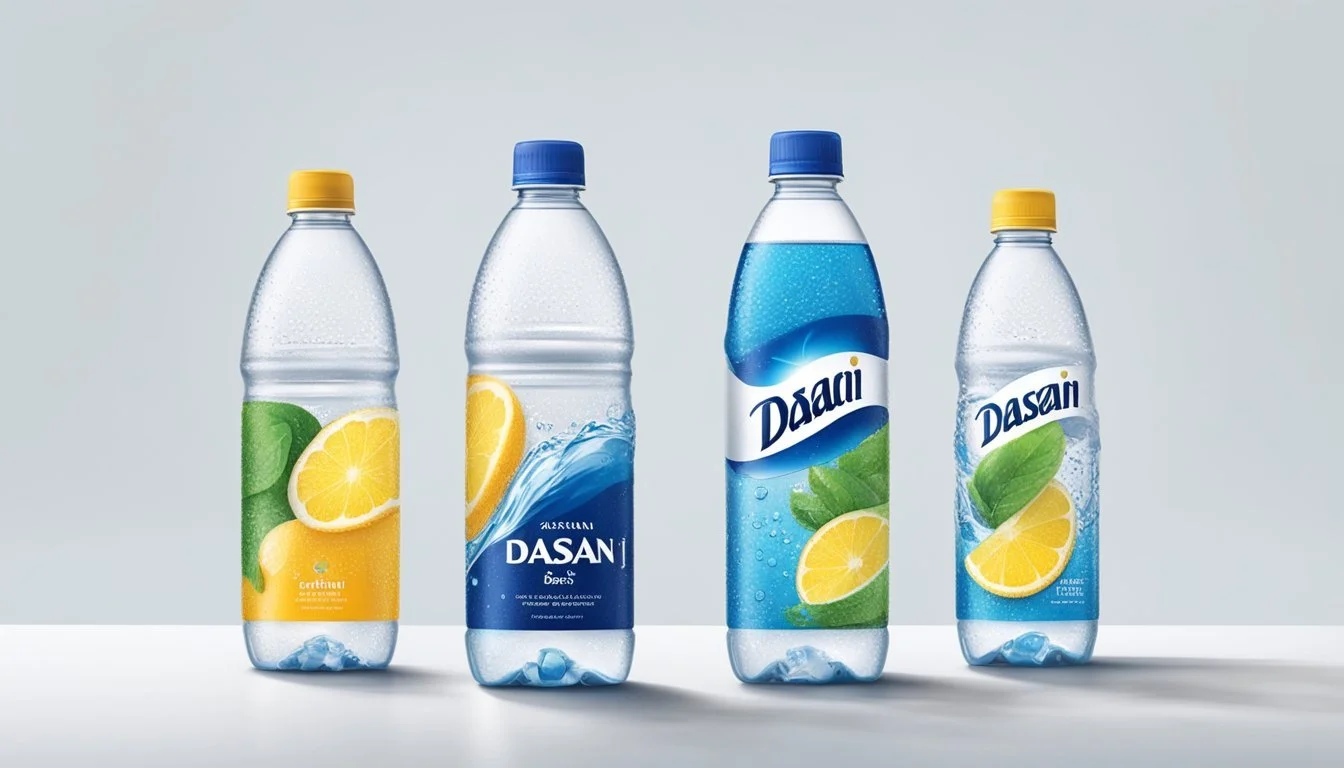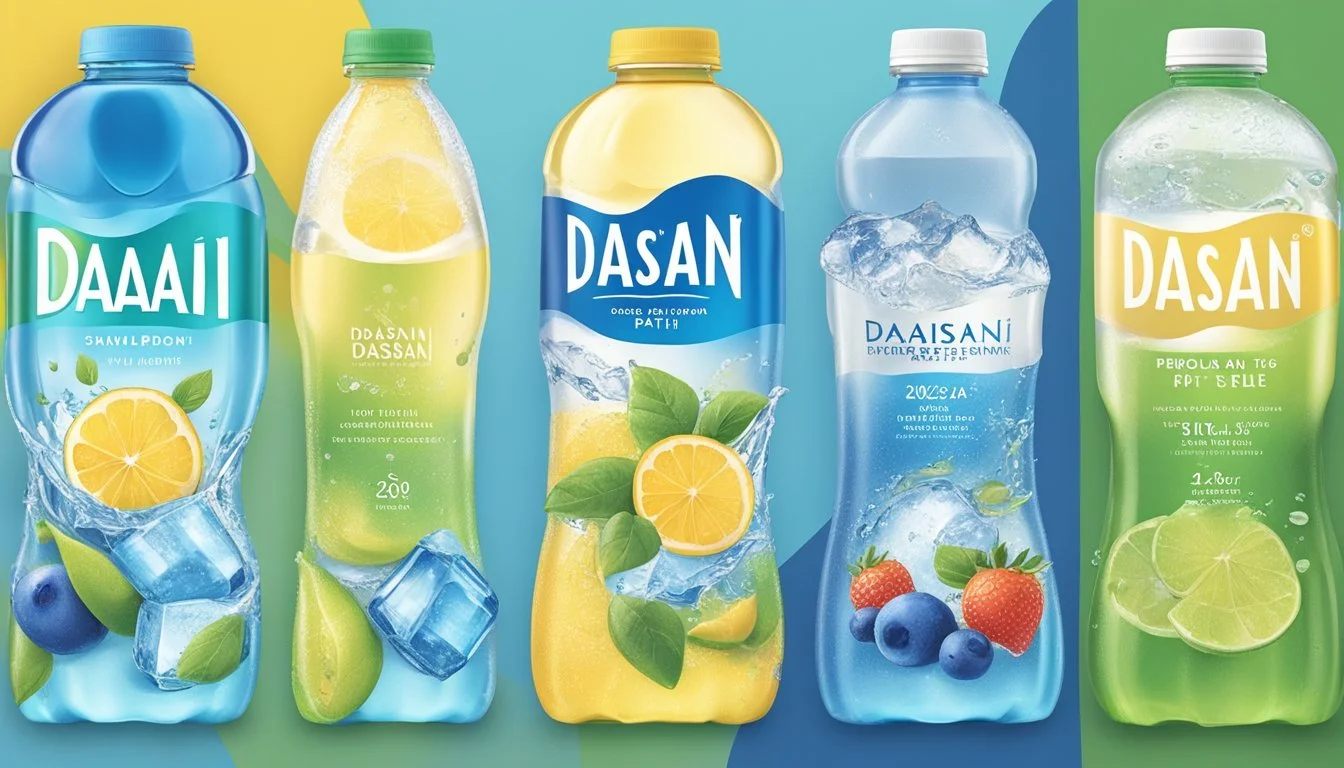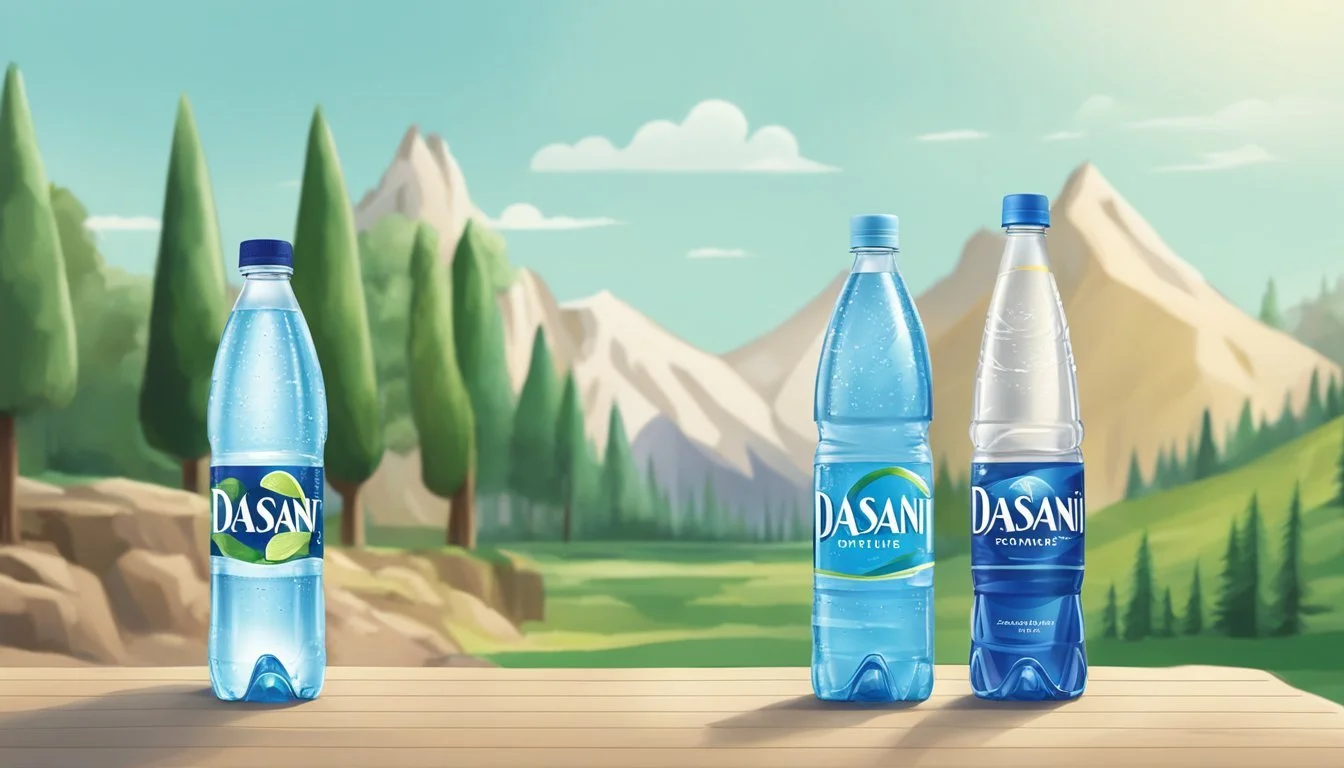Path vs. Dasani
Which Bottled Water Stands Out?
In today's crowded bottled water market, consumers often find themselves debating between different brands. Two prominent names are Path Water and Dasani, each with its own loyal fan base and unique qualities. Though both options are popular, there are distinct differences that might sway you one way or the other.
Path Water is often praised for its commitment to sustainability. Their reusable aluminum bottles are not only eco-friendly but also stylish and durable, making them an appealing choice for environmentally conscious consumers. Path Water is known for offering a crisp, clean taste that doesn't disappoint.
On the other hand, Dasani, produced by Coca-Cola, is widely available and has built a reputation for consistent quality. It boasts a purer taste due to its multi-step filtration process. Although it uses plastic bottles, which raises environmental concerns, Dasani remains a trusted name in households nationwide for its refreshing taste.
Understanding Bottled Water
Bottled water comes from various sources, undergoes different treatment processes, and adheres to strict regulations to ensure safety and quality. It is essential to understand these aspects to make an informed choice between brands like Path and Dasani.
Source and Origin
Bottled water can originate from various sources, which significantly impacts its quality and taste. Natural sources include springs, artesian wells, and groundwater. Examples of spring water brands are Evian and Poland Spring. Mineral water like Perrier and San Pellegrino is sourced from underground reservoirs and contains minerals naturally present in the water.
In contrast, Dasani and Aquafina often source water from municipal supplies, which undergo extensive filtration processes. Understanding the source helps consumers decide based on their preference for naturally sourced vs. treated water.
Types of Bottled Water
There are different types of bottled waters, each with unique characteristics:
Spring Water: Sourced directly from a natural spring. Example: Evian.
Mineral Water: Contains minerals and is usually sourced from natural springs or wells. Example: Fiji Water.
Purified Water: Undergoes treatment processes like reverse osmosis or distillation. Examples: Dasani, Aquafina.
Artesian Water: Comes from a confined aquifer. Example: Voss.
These distinctions affect the water's taste, mineral content, and consumer preference.
Bottled Water Regulations
Bottled water is regulated to ensure safety and quality. In the U.S., the Food and Drug Administration (FDA) sets standards similar to the Environmental Protection Agency (EPA) guidelines for tap water. Key regulations include:
Source Verification: Ensuring the source is protected from contamination.
Labeling Requirements: Accurate representation of the water's source and composition.
Quality Control: Regular testing for contaminants and adherence to permissible levels.
Brands like Smartwater and Icelandic Glacial adhere to these regulations, offering consumers confidence in their safety and quality standards. Understanding these regulatory frameworks is crucial for choosing between different bottled water options.
Comparing Path and Dasani
Path and Dasani are popular bottled water brands, each with distinct qualities in terms of company background, water source and purification, and environmental impact.
Company Background
Dasani is produced by the Coca-Cola Company, a global leader in the beverage industry. Introduced in 1999, it quickly gained popularity due to Coca-Cola's extensive distribution network. Dasani's prominence is bolstered by its affiliation with the well-established brand Coca-Cola.
Path operates under the vision of providing sustainably packaged water. The company emphasizes environmental consciousness and aims to offer an alternative to single-use plastic bottles. Path’s mission aligns with reducing plastic waste through innovative packaging solutions.
Water Source and Purification
Dasani's water undergoes an intricate purification process using reverse osmosis. This process removes impurities and adds a blend of minerals to enhance taste. The pH level of Dasani typically falls between 5.0 and 7.0, which some consumers may find slightly acidic.
Path sources its water from natural springs and ensures it undergoes thorough purification. The goal is to provide clean, high-quality water while maintaining a balanced pH level. This natural approach might appeal to consumers looking for less processed water options.
Bottles and Environmental Impact
Dasani uses plastic bottles, which are recyclable but still contribute to plastic waste. Coca-Cola has made strides in incorporating recycled materials and promoting recycling initiatives, but single-use plastics remain a concern for many environmentally-conscious consumers.
Path stands out with its sustainable packaging. The bottles are made from lightweight aluminum, which is reusable and infinitely recyclable, reducing environmental impact. This commitment to sustainability makes Path an appealing choice for eco-friendly consumers.
By focusing on these critical aspects, consumers can make a more informed decision about which brand aligns better with their preferences and values.
Health and Quality Considerations
Path and Dasani bottled waters both aim to provide safe and clean drinking water to consumers, but differ in aspects like mineral content, additives, and potential health impacts.
Mineral Content and Additives
Dasani water undergoes a reverse osmosis purification process. After purification, it is enhanced with a blend of minerals. This blend typically includes magnesium sulfate, potassium chloride, and a small amount of sodium to improve taste.
Path water, meanwhile, emphasizes minimal additives. It focuses on purification without significant added minerals or electrolytes.
Mineral and electrolyte content can be important as magnesium and potassium contribute to hydration efficiency. Yet, the difference in mineral additives can affect taste preference, which varies by individual.
Hydration and Health Implications
In terms of hydration, both Path and Dasani effectively meet basic hydration needs. Dasani’s added electrolytes like magnesium and potassium may offer slight advantages in maintaining electrolyte balance, especially during physical activity.
Path water, with fewer additives, might appeal to those preferring a more neutral taste and minimal intervention. From a health perspective, ensuring the absence of harmful contaminants is crucial.
Both brands adhere to FDA regulations concerning contaminants like lead and PFAS. Their purification methods also minimize risks from impurities such as bromate.
Differences in pH levels could also be a consideration for those sensitive to water acidity or alkalinity, although both brands generally fall within an acceptable range for safe consumption.
Taste Profiles and Personal Experience
When comparing Path and Dasani, key factors include their flavor profiles and individual perceptions of taste. Any comparison benefits from conducting blind taste tests to eliminate brand bias.
Water Flavor Discussion
Path water is often praised for its clean and refreshing taste, largely due to its minimal mineral content. This results in a neutral profile that many find satisfying and unobtrusive. Dasani, on the other hand, is known for its distinct mineral flavor which stems from added electrolytes like magnesium sulfate and potassium chloride.
Consumers' personal preferences can greatly influence which water they favor. Some enjoy Dasani's mineral-rich taste, while others prefer the cleanliness and simplicity of Path. It's worthy to note that the difference in aftertaste can also sway opinions. Path tends to leave a more neutral aftertaste, whereas Dasani might have a slightly mineral note lingering.
Conducting a Blind Taste Test
To provide a fair comparison, a blind taste test is invaluable. Participants can focus purely on the flavor without any preconceived notions about the brands. When conducting such a test, similar-sized samples of Path and Dasani should be provided.
Having diverse participants, including water sommeliers or enthusiasts, enhances the credibility of the results. Feedback often highlights Path's purity in taste compared to Dasani’s more pronounced mineral notes. While personal preference plays a key role, the neutral and balanced flavor of Path often appeals to a broader audience, making it more universally preferred in blind tastings.
Consumer Perspectives & Marketing Influence
Consumers' perspectives on bottled water are often shaped by personal preference and taste. Dasani is known for its proprietary blend of minerals added for a crisp taste, while Path offers purified, distilled water emphasizing purity and environmental consciousness.
Marketing plays a crucial role in shaping these perceptions. YouTube influencers, such as Shane Dawson, have brought significant attention to product reviews, which can sway consumer preferences. Companies leverage such platforms to gain a broader audience.
Branding influences bottled water choices significantly. Path markets itself as environmentally friendly, using reusable aluminum bottles, appealing to environmentally conscious consumers. Dasani, on the other hand, is promoted by its parent company, The Coca-Cola Company, and benefits from strong brand recognition and widespread distribution.
Water flavor can be subjective. Some consumers prefer the mineral-enhanced taste of Dasani, while others might lean towards the cleaner, simpler taste of Path. These differences in taste preferences highlight how consumer choices are often based on personal experiences and perceptions.
Marketing strategies and celebrity endorsements can bridge the gap between similar products. Path's focus on sustainability and Dasani's strong brand presence highlight varying marketing influences that cater to different segments of the market.
Comparative Analysis of Alternatives
When evaluating bottled water options, it's crucial to consider the competing brands in the market and the differences in purification methods versus mineral content.
Competing Brands in Market
Path, Dasani, and other notable competitors like Smartwater, Nestlé Pure Life, and Essentia play significant roles in consumer choices.
Smartwater is known for its vapor-distillation process, resulting in clean and crisp water. Nestlé Pure Life offers a reliable and economical choice, appealing to families and bulk buyers. Essentia stands out with its ionized alkaline water, which many consumers seek for its potential health benefits.
Core Hydration provides perfectly balanced pH water, while LIFEWTR focuses on added electrolytes and artistic bottle designs. Voss and Mountain Valley often win over luxury-seeking consumers with their pristine sources, including springs in the French Alps and Maine. Each brand offers unique selling points that cater to various lifestyles and preferences.
Purified vs. Mineral Water
Path prioritizes purified water, employing advanced filtration processes such as reverse osmosis and UV light to ensure safety and purity. This method is effective in eliminating most contaminants, making it a preferred choice for those worried about water quality. Path's use of sustainable packaging also attracts eco-conscious consumers.
Dasani also uses a multi-step purification process, including reverse osmosis, and adds a mix of mineral salts to improve taste.
Mineral water brands like Voss and Mountain Valley benefit from naturally occurring minerals sourced directly from springs, providing a distinct taste profile and potential health advantages. These minerals are retained during bottling, offering benefits like improved digestion and bone health. Consumers often appreciate the "natural" aspect, associating it with fewer chemical alterations.
This comparison highlights how preferences can significantly vary based on purification type, mineral content, and brand reputation.
More About Path
Mountain Valley Spring Water vs Path: Which Bottled Water is Better?
Path vs Whole Foods Italian Still Mineral water: Which Bottled Water is Better?





